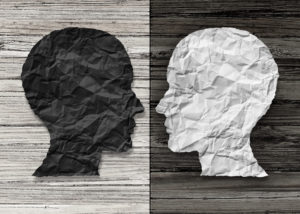Around 10 million Americans have been diagnosed with Season Affective Disorder. So, if you or a loved one is experiencing SAD then you’re certainly not alone.
If you or a loved one is experiencing symptoms of SAD, then you may be wondering how to deal with seasonal depression. Gathering more information is a great first start, so we’re glad you’re here.
There is hope and many ways to feel better and better. One day, one action, and one solution at a time, you can feel good once more.
Seasonal Affective Disorder also known as “SAD” is a form of depression that occurs during specific seasons. Usually, SAD occurs in the winter, but some people experience SAD in other seasons as well.
Symptoms of SAD include chronic low mood, cravings for carbs and junk food, and under or oversleeping. People affected by SAD may also gain or lose weight, feel fatigued, or have difficulty concentrating.
If your loved one is experiencing SAD, then you may have noticed them becoming more withdrawn, less active, or more anxious than usual. Seeing your loved one in this state can be worrisome, but there are some ways you can help to ease their SAD and your own concerns.
Read on to discover a variety of ways to support your loved one with SAD.
How to Deal with Seasonal Depression
Only a doctor can officially diagnose someone with SAD, but it’s helpful to know how to get them help if you suspect they have this condition. Explore the following ways to help your loved one and stay grounded in the process.
1. Suggest Going to See the Doctor
When someone is depressed is can be difficult to complete everyday tasks. They might find it difficult to focus on their work or school because of the overwhelming thoughts and feelings that take up their attention. These thoughts can be exhausting for the individual and they can make them feel hopeless.
While in this state, it may be difficult for your loved one to feel like going to the doctor. By suggesting they do go to see a doctor you are providing them with a solution to their problem, a solution they may not have thought of before.
You can also provide them with a list of doctors and their phone numbers so that they have all the information they need to set up an appointment.
2. Suggest a Light Therapy Box
If your loved one’s SAD occurs in the winter, then a light therapy box may help to relieve their depression symptoms. There are light therapy boxes that are made to specifically treat symptoms of depression. These light boxes create 10,000 lux and are safe to use.
3. Cook for Them
Eating a healthy diet full of nutrients can help your loved one to feel better. For people with winter SAD, foods that contain vitamin D are great choices. Eggs, wild mushrooms, and salmon are all great choices.
Foods containing Omega-3 fatty acids are also an excellent choice. Various fish, walnuts, and soybeans all contain Omega-3 fatty acids. You could also suggest to your loved one that during these months, they purchase a meal service/grocery delivery service. This will ensure that they are eating healthy meals without much effort on their part.
Taking vitamin-D and Omega-3 fatty acid supplements is also an option. Speak with your doctor to get the right dosage and to make sure these supplements don’t interact with any other medications.
4. Suggest Going on a Walk Together
Exercise releases feel-good endorphins and helps to alleviate the symptoms of SAD. Exercise can improve your loved one’s mood and give them more energy.
You could also suggest to your loved one that they purchase a gym membership during the season their SAD symptoms occur. Going to the gym is especially helpful during the winter months when it can be frigid outdoors.
5. Practice Self-Care
This tip is for you. It’s understandable that your loved one’s SAD would cause you to worry about them, but it’s very important to take care of yourself.
Practice a daily routine of self-care and allow yourself to fully be present. For example, you can meditate, call a friend, go out at night, or journal. All of these activities will help you to feel rejuvenated so that you can better support your loved one.
6. Join a Support Group
Sometimes we just need someone to say, “I understand what you’re going through, and it’s going to be okay.” And, it’s even better when we hear this from someone who has been through a similar situation with a loved one. Join a support group to gain the benefit of support and understanding from others.
Supports groups may be available in your town or online.
7. Create a Plan of Action
Being prepared can help us all to be more successful in the future. If you and your loved one knows or suspects that they have SAD, then get prepared.
In advance, create a plan of action detailing a self-care plan. Plan to go to the doctor, purchase a light box and gym membership, and create a schedule. Creating a schedule will help your loved one to focus and feel more confident about what to do to manage their SAD.
Try to create this schedule in advance of the season. This will give your loved one something to look forward to and focus on during these months. It could also be helpful to plan a vacation to somewhere warm and sunny.
Creating a list of coping skills for SAD is also beneficial.
How to Deal with Seasonal Depression
Knowing how to deal with seasonal depression can help you to feel more at ease. While it can be heartbreaking to see your loved one in pain, remember to care for yourself as well. The better you feel, the more you will be able to give support to your loved one.
There’s nothing shameful about being depressed, and it’s always okay to ask for help. Speak to a therapist or medical professional to gain further guidance and advice as needed.
Do you or a loved one need treatment for SAD and addiction? Contact us today and visit one of our Northbound Treatment centers where we treat dual diagnosis.
Author
-

President, CEO & Founder at Northbound Treatment Network
Paul Alexander is the CEO, President & Founder of Northbound Treatment Network in Newport Beach, California. He believes wholeheartedly in transformational leadership, organizational health and effective, fully integrated substance use disorder and mental health treatment. With over 27 years of experience in behavioral healthcare, Paul has extensive knowledge of “in vivo” treatment modalities, clinical development, operations, strategy, marketing and financial planning. He has been widely recognized for his development of collegiate-based residential treatment programs for students in recovery and authored a research study at The University of California confirming this modality’s effectiveness.
Paul’s comprehensive professional experience, willingness to innovate, and emphasis on organizational health are vital factors in Northbound’s continued success. Paul received his Certified Addiction Treatment Specialist training at Saddleback College in Mission Viejo, CA, and was awarded Outstanding Alumni Service Award in 2002. Paul holds a Bachelor of Arts degree in Criminology, Law and Society, Summa Cum Laude, from University of California, Irvine, and a Juris Doctorate degree from Loyola Law School of Los Angeles. Paul currently serves on The National Association of Addiction Treatment Providers (NAATP) board. In addition, he serves on The Family Recovery Foundation board and The CarePossible board in Orange County; both organizations are committed to raising funds for family recovery and treatment for former military personnel. Paul is in recovery himself and lives in Orange County with his wife Silvana and his two young sons, Noah and Dean.










